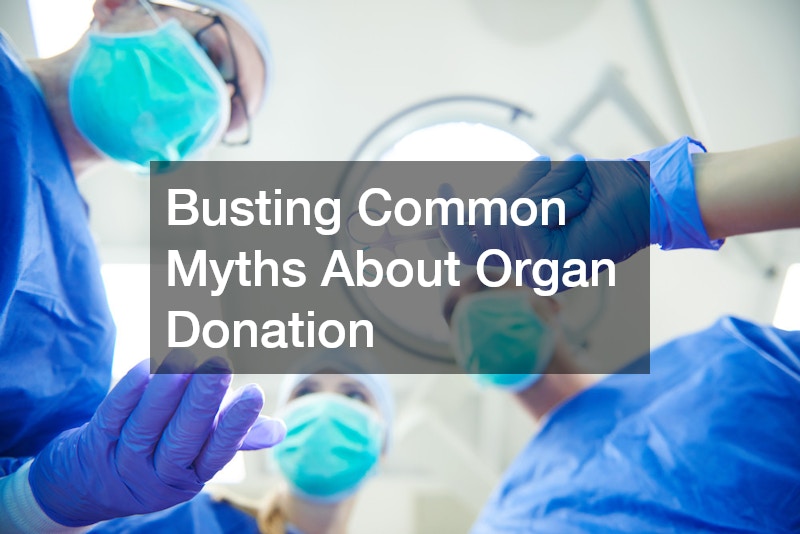
Organ donation is a life-saving process that offers hope to thousands of people in need of transplants each year. However, despite the clear benefits, many myths and misconceptions about organ donation still exist. These myths can discourage potential donors from registering or make families hesitant to consent to donations. Let’s break down some of the most common myths about organ donation and clarify the truth behind them.
Myth 1: Doctors Won’t Work as Hard to Save a Donor’s Life
One of the most persistent myths about organ donation is that doctors might not work as hard to save a registered donor’s life. The reality is that medical professionals are dedicated to saving every patient’s life, regardless of whether they are a registered organ donor. A doctor’s priority is always to provide the best possible care, and the organ donation process is only considered after all efforts to save the patient have been exhausted. In fact, the medical team involved in saving the patient’s life is entirely separate from the transplant team.
Myth 2: Only Young, Healthy People Can Donate Organs
Another widespread misconception is that only young and healthy individuals can be organ donors. The truth is that people of all ages and health conditions can potentially donate. There’s no strict age limit for organ donation, and medical professionals assess each potential donor on a case-by-case basis. Factors such as the donor’s overall health, the condition of the organs, and the type of donation will determine whether they are suitable candidates. Even individuals with certain chronic conditions may still be eligible to donate.
Myth 3: Organ Donation Is Against My Religion
Many people are unsure about organ donation due to concerns about their religious beliefs. However, most major religions, including Christianity, Islam, Judaism, and Hinduism, support organ donation as an act of compassion and generosity. If you are unsure about your faith’s stance on this issue, it’s a good idea to consult with a religious leader or representative to gain a clearer understanding. It’s important to remember that organ donation is viewed as a way to save lives, aligning with the core principles of many religious teachings.
Myth 4: I’m Too Old to Be a Donor
Age should not be a barrier to becoming an organ donor. While many people believe that they are too old to donate, the fact is that organ and tissue donation suitability is based on the condition of the organs, not the donor’s age. People in their 50s, 60s, and even 70s have successfully donated organs and saved lives. Therefore, it’s essential to register regardless of your age, as the final decision will be made by medical professionals.
.

